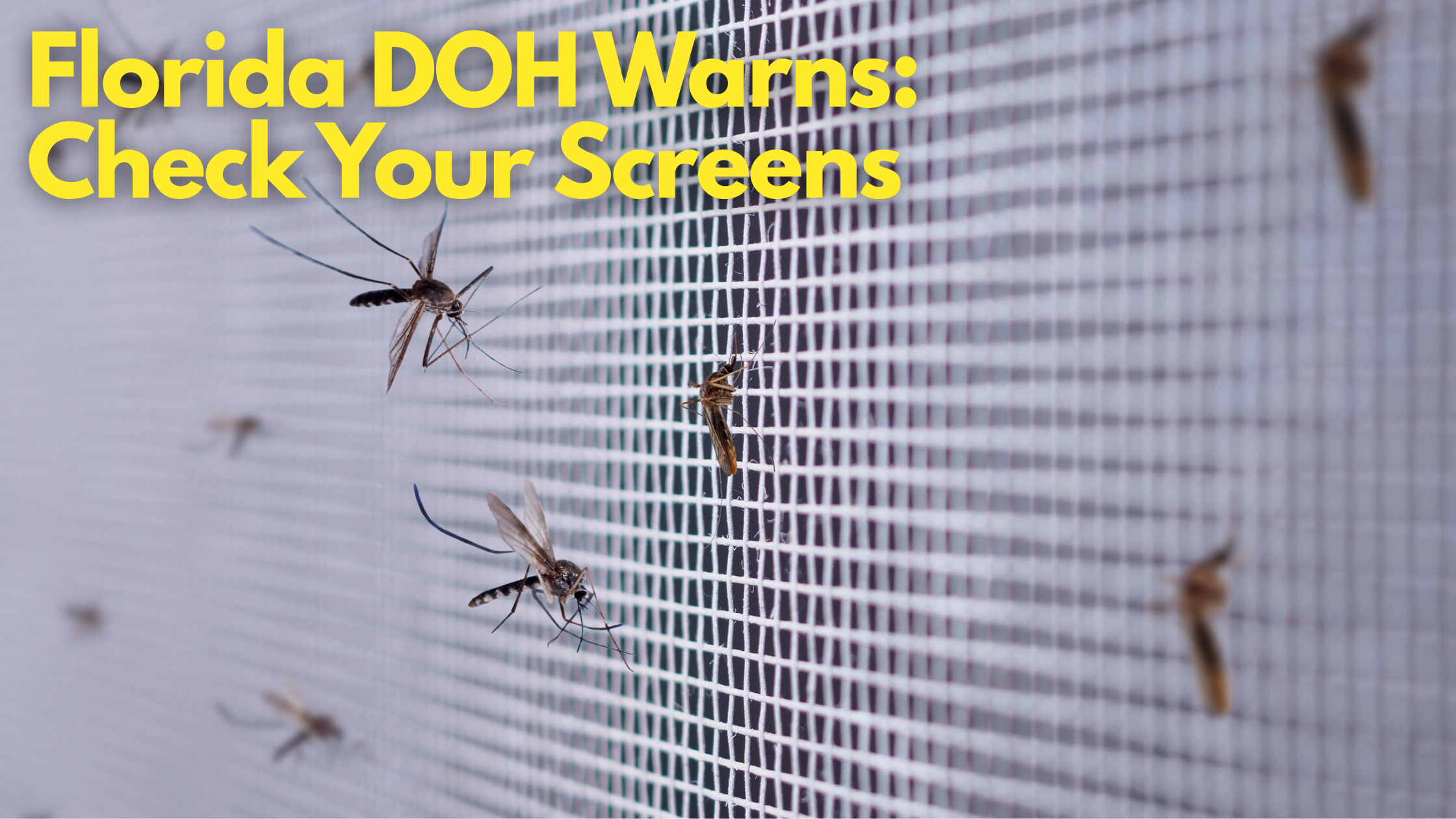Florida is facing a sharp rise in mosquito-borne illnesses in 2025, prompting urgent guidance from the Florida Department of Health (DOH). Officials are advising residents to inspect and replace worn or damaged window and door screens—one of the simplest and most effective ways to prevent mosquitoes from entering homes and spreading disease.
A Growing Mosquito Threat
Florida’s warm, humid climate has always made it a hotspot for mosquito activity, but this year has seen an alarming spike. So far in 2025, Florida has recorded 50 locally acquired cases of dengue—triple the number from the same time last year. Brevard County alone has confirmed 3 of those cases, raising concern among local health officials. Additionally, the state has reported 18 cases of West Nile virus, a doubling from 2024.
Adding to the concern is the appearance of Oropouche fever, a tropical virus traditionally spread by biting midges but now suspected to be carried by certain mosquito species. Several travel-related cases have already been reported in the U.S., further intensifying the need for preventative action.
Why Screens Matter More Than Ever
One of the most effective lines of defense against mosquito-borne illness is a well-maintained screen system. According to Scott Stanchfield, manager of HS Shade Solutions, many homes in Florida are outfitted with screens that are torn, warped, or poorly fitted—making them virtually useless against persistent pests like the Aedes aegypti mosquito, the main vector for dengue, Zika, and yellow fever.
“Keeping structures in good repair, especially maintaining the integrity of window and door screens, is a critical first defense against mosquito-spread diseases,” says Stanchfield.
The Case for Replacing Older Screens
Over time, Florida’s intense sun, salt air, and stormy weather can degrade even high-quality screens. A 2024 study from the University of Florida found that aged or damaged screens were a common entry point for mosquitoes in residential neighborhoods, particularly in coastal and urban areas.
“Some of the newer screening materials and technologies offer real peace of mind,” says Stanchfield. “With features like UV protection, improved durability, and even motorized options, today’s screens are built for Florida’s toughest conditions.”
Newer options include high-visibility mesh, pet-resistant screens, and retractable or motorized screen systems that add both convenience and protection for outdoor areas like patios and garages.
Taking Action at Home
The Florida DOH recommends a layered approach to mosquito control, starting with a thorough inspection of all screens for tears, holes, or loose edges. Combine this with draining standing water around your property, wearing light long-sleeved clothing, and using EPA-registered mosquito repellents.
Some counties are even offering free or subsidized screen replacements, especially for seniors and low-income households. For those unsure about the state of their home’s protection, mosquito control districts and companies like HS Shade Solutions often provide free inspections and estimates.
“Prevention is our best tool,” says Stanchfield. “It’s time to make sure your screens are up to the task of protecting your family.”
For more information on mosquito prevention and local support programs, visit the Florida Department of Health at www.floridahealth.gov or contact your local mosquito control district.











